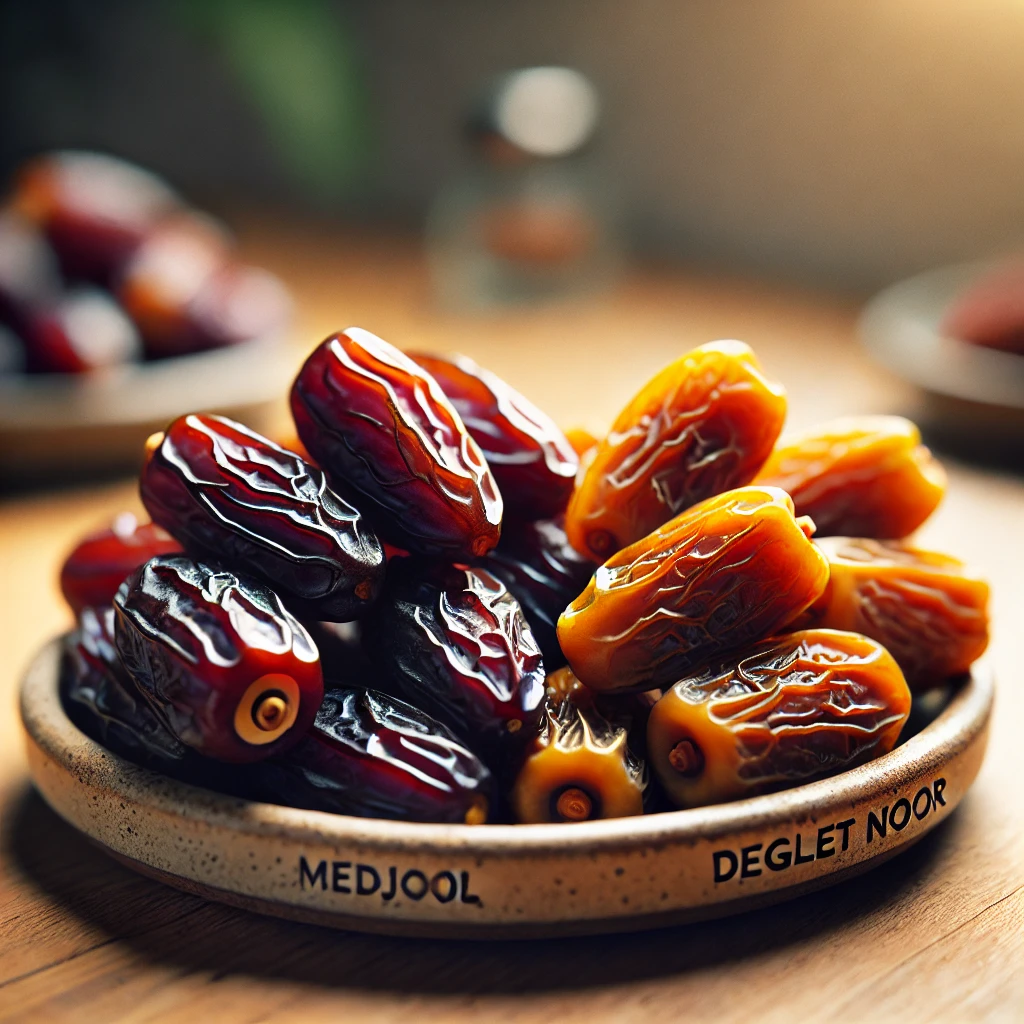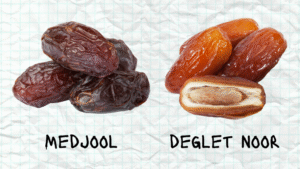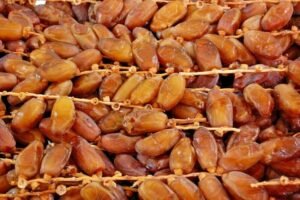In the world of dates, two varieties consistently stand out for their distinctive qualities and widespread popularity: Medjool and Deglet Noor. Both types have celebrated their status in culinary traditions, yet they offer unique flavors, textures, and nutritional benefits that appeal to different palates and uses. In this detailed article, we delve into their origins, taste profiles, nutritional content, culinary applications, and cultural significance to help determine which date might be considered “better”—or more accurately, which type of date is best suited to your particular needs.
Origins and Historical Significance
Medjool dates trace their origins to Morocco and are believed to have been cultivated for hundreds of years. With a reputation as the “King of Dates,” Medjool has become particularly popular in the Middle East and the United States, where California’s fertile lands offer the perfect growing conditions. Their impressive size, deep caramel color, and succulent flesh have made them a prized ingredient in many traditional dishes and a symbol of hospitality in various cultures.
In contrast, Deglet Noor dates have earned the title “the queen of all dates.” They are predominantly grown in Algeria, Tunisia, and regions of California as well, offering a more modest size and a drier, fibrous texture. Historically, Deglet Noor dates played an important role in North African trade and cuisine, where they were not only a food staple but also a vital ingredient in numerous dishes, representing a more subtle, yet refined flavor profile that nourished communities over generations.

Flavor and Texture: A Tale of Two Profiles
One of the central points of comparison between these date varieties is their flavor and texture. Medjool dates are renowned for their rich, syrupy sweetness and tender, moist flesh. Their robust, almost honey-like flavor makes them a delightful snack on their own, and they are frequently incorporated into decadent desserts, smoothies, and energy bars. The luscious texture of Medjool dates lends itself well to culinary creativity, allowing chefs and home cooks alike to explore their versatility in both sweet and savory dishes.
On the other hand, Deglet Noor dates, while still sweet, offer a more subtle and delicate flavor. Their texture is drier and firmer, which can be appealing in recipes where a slightly chewier bite is desired. The moderate flavor intensity of Deglet Noor dates makes them an excellent ingredient in baked goods such as cakes and pastries, as well as in savory tagines and salads, where they provide a pleasant, nuanced sweetness without overwhelming the dish.
Nutritional Benefits and Health Considerations
Both Medjool and Deglet Noor dates are celebrated for their impressive nutritional profiles, though they differ slightly in composition. Medjool dates, with their larger size, tend to have higher levels of natural sugars and dietary fiber. They offer a quick boost of energy, making them a favored choice for athletes and anyone looking for a natural, nutrient-dense snack. Medjool dates also contain significant amounts of potassium, magnesium, and antioxidants that can contribute to overall health. This makes them not only a delicious treat but also a practical one that can support heart health and proper digestion.
Deglet Noor dates, while slightly lower in natural sugars compared to Medjool dates, still provide an excellent source of energy and essential nutrients. Their moderately high fiber content and rich supply of vitamins and minerals, such as vitamin B6 and iron, make them a valuable addition to a balanced diet. The slightly lower sugar content of Deglet Noor dates could be seen as an advantage for those monitoring their carbohydrate intake, and their firmer texture may encourage a slower, more mindful consumption.
Culinary Versatility and Uses
The culinary applications of both dates are as varied as they are delicious. Medjool dates, with their plump size and decadent sweetness, are a popular choice in the making of natural desserts and energy bars. Chefs often use these dates as a base for raw desserts, blending them with nuts and seeds to create nutrient-packed treats without the need for added sugars. In addition, their moist texture and robust flavor make them ideal for stuffing with cheeses, embedding into salads, or even cooking alongside meats to provide a burst of natural sweetness that balances spicier, savory flavors.
Deglet Noor dates are equally versatile but tend to shine in baked and cooked recipes. Their drier nature makes them suitable for slicing and incorporating into pastries, bread, and other baked goods where a firmer date can lend structure and a pleasant chewiness. Deglet Noor dates also work well in slow-cooked dishes, where they can rehydrate and infuse dishes like stews and tagines with a subtle sweetness that enhances the complex flavor profiles of these traditional recipes. Their ability to hold shape and absorb moisture makes them a culinary chameleon in the kitchen.
Economic and Environmental Considerations
When deciding between Medjool and Deglet Noor dates, it is also important to consider factors such as availability, cost, and environmental impact. Medjool dates, being larger and often considered a luxury item, can be more expensive. Their cultivation requires careful tending and optimal growing conditions, and they are often hand-picked to ensure the best quality. This intensive production process can contribute to their higher market price, making them a premium product that many consumers are willing to pay for due to their superior taste and texture.
Conversely, Deglet Noor dates are generally more abundant and often come at a lower price point. Their relatively hardy nature and wider cultivation areas mean that they can be produced and distributed at a larger scale, providing consumers with a cost-effective option without sacrificing nutritional benefits or culinary versatility. For many households, especially those with tighter budgets or a penchant for more traditional, less extravagant ingredients, Deglet Noor dates represent an accessible and highly valuable food source.
Cultural Impact and Consumer Preference
The debate over which date is “better” is not merely a matter of taste or texture—it is also deeply rooted in cultural traditions and personal preference. In many Middle Eastern cultures, Medjool dates are a symbol of prosperity, luxury, and celebration. Their majestic appearance and sumptuous flavor make them a favored choice during festive seasons and religious holidays, where they are offered as tokens of generosity and refined taste.
Meanwhile, Deglet Noor dates command respect in North African cuisines and are cherished for their consistency and adaptability. Their more understated flavor can be a comfort food for many, evoking memories of family recipes handed down through generations. Consumer preferences thus often hinge on the emotional and cultural connections that individuals have with these two dates, creating a rich tapestry of opinions that goes far beyond mere nutritional values.
Final Thoughts: The Best Date for Every Occasion
In the final analysis, the question of which date is better—Medjool or Deglet Noor—ultimately comes down to what you are seeking in a date. If your ideal is a date bursting with rich sweetness and luscious, juicy flesh that pairs perfectly with both raw desserts and decadent culinary experiments, Medjool dates may be the ideal choice. Their impressive size, nutritional abundance, and luxurious flavor profile make them the preferred option for those looking to indulge and celebrate.
However, if your needs align more with a date that offers a subtle sweetness, a firm texture that holds up well in baking, and a more economical yet nutritionally robust option for everyday cooking, then Deglet Noor dates deserve serious consideration. Their versatility in both sweet and savory applications, coupled with their widespread availability and lower cost, make them a practical and reliable choice for many kitchens around the world.
In conclusion, each date variety brings its own set of advantages to the table. Whether it’s the lavish, silky texture of the Medjool or the resilient, balanced flavor of the Deglet Noor, the “better” date is ultimately a reflection of personal taste, culinary application, and cultural significance. By understanding the characteristics and benefits of both, consumers can make an informed decision that suits their dietary and culinary preferences, celebrating the rich legacy and diversity of nature’s sweetest offerings.
Through careful comparison of flavor, texture, nutritional content, and versatility in the kitchen, it becomes clear that there is no one-size-fits-all answer to this debate. Instead, the choice between Medjool and Deglet Noor dates is a matter of individual preference and intended use, ensuring that whether you are planning an extravagant feast or a simple, wholesome snack, there is a perfect date to meet your needs.



